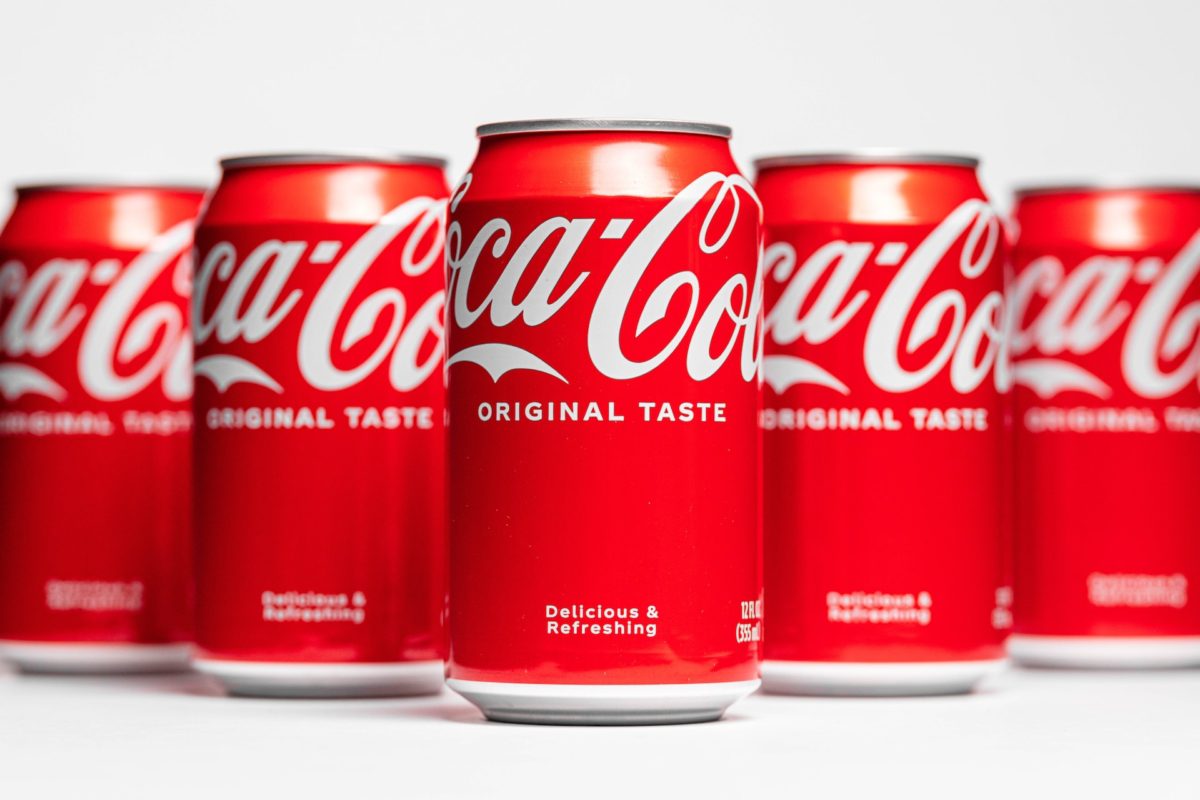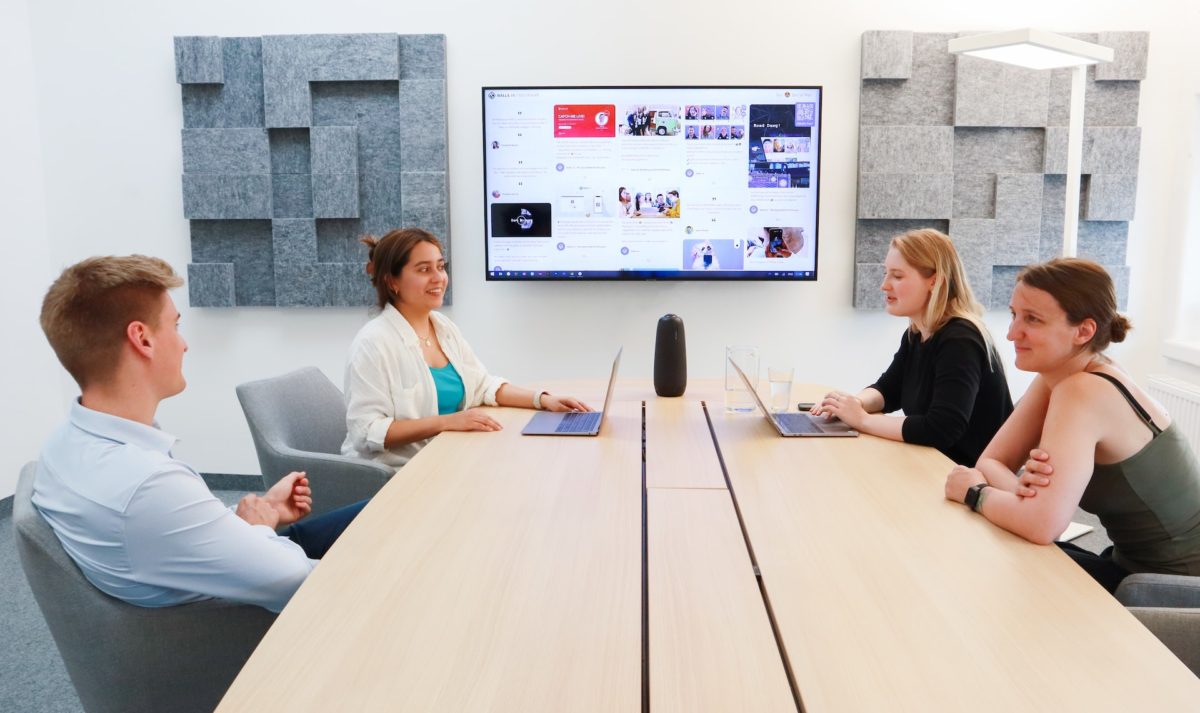Have you ever wondered how brands like Apple, Starbucks, and Netflix manage to achieve worldwide recognition and success? The secret lies in their global strategy.
There are thousands of small and medium firms in the world. They all have different structure, mission, business culture and services. Fortunately, some tools allow you to obtain key information about such companies and help in establishing their desired brand identity. One such tool that has proven to be effective is a branding questionnaire. By asking the right questions it can help you gain key insights into a company’s unique qualities and brand’s identity.
What is a branding questionnaire?
Branding or rebranding of a company will not be successful without acquiring basic information about its unique characteristics. One of the most efficient tools for this job is a branding questionnaire. It’s basically a set of brand identity questions. It is used as a form of brand brainstorming before creating the actual digital marketing campaign – usually conducted by external companies hired to create a branding questionnaire for the duration of the campaign.
What does the brand questionnaire look like?
A well-structured survey allows for a preliminary analysis of the company’s image, which will attract potential customers. It is usually a list of open-ended questions that help to estimate the main assumptions and needs of a given company.
Branding questionnaire should include:
- brand story and company mission statement
- existing associations related to the brand (e.g. low prices, products of high quality or fast delivery)
- main competitors
- current and/or future target audience
- symbols and logos representing the brand
- short and long-term company goals
The branding questionnaire template is meant to be a starting point that prompts you to think about features that make a given brand distinguishable. While creating it, it’s also important to analyze the marketing process itself – its time frame, budget and human resources.

Branding questions to answer
The main purpose of branding is to create an identity of a given brand. First, you need to create a course of action, a plan, that should be followed regardless of whether you are going to do it yourself or with the help of specialists.
The aim of promotional and marketing campaigns is to create a brand image which inspires the trust of potential customers and constitutes a competitive advantage on the market. A good and effective branding questionnaire, will enable you to develop in the right direction.
There are some universal questions to ask when building a brand. Make sure to answer each of them:
What type of ideal customers would you like to attract?
Some businesses want to offer their products only to a designated ideal customer. Other firms design their services with a few market research or specific age group in mind, and expensive brands target mostly the richer part of the society.
What is your message?
Try to encompass your firm’s mission in one sentence. What are the feelings your ideal customers should experience upon visiting your shop? The manner in which your brand communicates with the world is what defines its brand voice.
Each brand should be built with ethical premises in mind. Remember that your products are also made for a specific purpose, such as entertainment or education. Keep in mind that certain components of your current brand identity may have become obsolete and are no longer effective, even though they may have been functional in the past.

What makes your brand unique?
Innovative and unique goods aimed at improving the quality of life are the most popular. Think about the problems that can be solved with the use of your company’s products. What are the main reasons your ideal customer should use your services and not your competitors’?
How would you describe your brand?
Creating a list of descriptive words that capture your brand’s personality, appearance, and brand voice is a recommended approach. Consider your brand attributes. Which specific characteristics and qualities can be associated with your brand? Imagine a logo and slogan that portray your firm. Think about the colors, symbols, shapes and brand archetypes that can represent the brand you’re creating. Some companies opt for flashy colors and customized fonts, while others prefer classic, neutral solutions in their visual identity. Remember that your website, business cards, branding materials and promotional gifts designs say a lot about your firm.
Who should belong to your target audience?
Walk a mile in your target customers’ shoes. Think about their needs, capabilities and habits. These are the key features that affect future branding and profitability. For example, it would be a good idea to limit online marketing and expand on distribution of offline marketing materials, such as brochures, and cold calling if your target audience consists mostly of older customers.
Who are your main competitors?
There must be some brands in your industry that you admire. How did they establish their position on the market? Was it a result of a great business strategy, work ethics, ideology or the quality of their products and services? List their good practices as well as those you’d change, then think on which and how to implement them in your brand.
These are just some of the questions to ask when building a brand strategy. If you decide to hire a company such as Nopio, our professionals will create an insightful document, tailored to your needs and their workflow.

Advantages of having a well-structured branding questionnaire
A survey consisting of brand discovery questions is a simple and efficient tool that can serve as a great starting point for promotional activities. Uniform brand identity and thoughtful marketing have a significant impact on the recognition of a given company and its position on the market.
Here are some of the benefits that come with the completion of the brand identity questionnaire:
- Efficient development of the marketing strategy.
- Better results of promotional activities that are tailored to the individual needs of the company.
- Gaining a competitive advantage over the companies with ineffective branding.
- Creating an easy-to-understand company ideology.
- Bigger customer base that identifies with the company’s mission.
- Developing marketing tools that will have an impact on the behavior of the ideal customer.
Brand identity questionnaire is a simple tool, but its sensible use will yield long-term results. It allows you to answer all branding questions and control the way the new brand identity of your firm or client’s business is being developed. All those features add up to the recognizability and popularity of the brand.

Why is branding so important?
We can all agree that the way in which employees, customers and competitors perceive your firm is crucial. Only a few dozen years ago, customers mostly used local services to which they had easy access. The reputation of a company was built primarily on customers’ opinions. Only the wealthiest enterprises that bought airtime on television or newspaper columns could afford to invest in professional marketing activities.
Currently, many companies, especially smaller ones, do not see the need to actively build a clear brand identity. This is a mistake that may decide about the survival of a given company on the market. Brand identity is more than just a logo, as it also includes the brand’s personality and visual elements.
Access to online purchases and immediate exchange of information between users from all over the world create great opportunities for entrepreneurs. At the same time, companies have to face international competition and the crazy pace of technological development.
Customers usually decide to use the services in question again thanks to the high-quality products. Nevertheless, because of online shopping, the possibility of establishing an emotional bond with the seller or sales representative appears less frequently. Therefore, with numerous smaller companies on the market, sometimes their recognizability to ideal customer turns out to be crucial.
Customers return to proven sellers and become brand ambassadors, after remembering a catchy slogan or finding a promotional coupon from previous purchases. Those seemingly insignificant branding activities can determine the success of enterprises.
It’s worth remembering that customers are becoming more conscious when making their purchase decisions. They consider issues such as the mission of a company or its policy. A well-made brand discovery questionnaire should contain issues that will allow for a better understanding of the firm, even to a business owner. A brand strategy questionnaire makes for a great opportunity to get to know the values and priorities of a given company. It is a very strategic approach, because the firm’s ethical mission and its unwavering image may sometimes be more important to customers than the cost of the offered goods.
As a result, it is hard to overestimate branding activities. Their goal is to:
- Increase the recognizability of the brand.
- Promotion of its products, mission and ideals.
- Making the company easy to distinguish from its direct competitors.
- Creating the image of a dynamically developing, strong firm.
- Building a motivated and satisfied team of employees.
- Creating a clear concept that will be looked into in the next stages of brand development.
Branding is more than just promotional activities. It’s an opportunity to analyze existing brand values, to create a solid brand identity and to make new bonds with potential customers through the development of customer communications.
By collecting data through branding questionnaires, companies can gain insights into their brand’s strengths, weaknesses, and opportunities for improvement. Conducting customer interviews by marketing department is also a great strategy to gain a deeper insight into client’s perspective, which can lead to a better understanding of your ideal customer and their pain points.
By incorporating specific brand awareness metrics, such as aided recall or brand recognition, into a well-designed branding questionnaire, marketers can effectively measure the impact and effectiveness of their brand messaging
Examples of great branding
Many entrepreneurs focus only on creating high-quality products and cooperation with reliable contractors or suppliers. Over time, additional services appear in stores, such as a repair point or a telephone line for existing customers. Those are the key elements when creating customer loyalty to a brand.
Nevertheless, extensive marketing activities must not be forgotten. Many of the current multi-million-dollar companies have gained their recognition and, as a result, loyal customers, thanks to properly conducted branding project. That’s why it’s important to go through an extensive brand brainstorming.
Here’s a list of companies that know how to develop a strong brand identity:
Coca-Cola
Currently, it’s almost a synonym for sweet carbonated drinks served during family meals or holidays. This brand promotes local activities, the idea of family meetings and sharing. The company’s iconic product is associated with both its taste and the appearance of its packaging – a characteristic shade of red.
In addition to seasonal drinks, personalized packaging and contests with prizes, the company also conducts unique branding activities that have become its characteristic feature. Red Coca-Cola trucks, which remind residents of cities and towns about the upcoming holidays during the Christmas period, are the most famous and awaited form of promotion.
The company is so famous that its main competitor, Pepsi, had multiple ads featuring Coca-Cola. The long-term media duel between those firms resulted in increased recognition of both famous brands.

Ikea
It is a network of the most recognizable furniture stores in the world. The company’s main idea is to create practical, aesthetic and affordable products. It’s also known for its concern for the natural environment and sustainable development. Individual stores – both their displays and the available assortment – are tailored to local needs and traditions.
Ikea promotes itself as a store where you can find absolutely everything that allows you to design, arrange and use the living space of your house. In addition, the brand has become a synonym for products that buyers assemble at home. Excellent marketing and competitive pricing encouraged the prospective customers to reach for the company’s unconventional solutions. They save money that would be spent on the assembly fee and get the opportunity to build something themselves.
Apple
It is a brand known not only for its innovative products, but also for high-quality customer service. The company’s strategy is mainly to promote high-quality goods that are available to a wide audience. Although all Apple stores around the world are the same, individual marketing activities are often tailored to the individual preferences of local customers. Most people know not only their brand’s story, products and services, but also Steve Jobs, one of the brand founders.
If you want to build a business that your audience will love, start by filling out a brand identity questionnaire. After you’re done, consider going through the logo design questionnaire as well. Remember that properly conducted corporate branding will allow you to better plan promotional and marketing activities, and as a result, shaping your brand in the minds of target customers.






